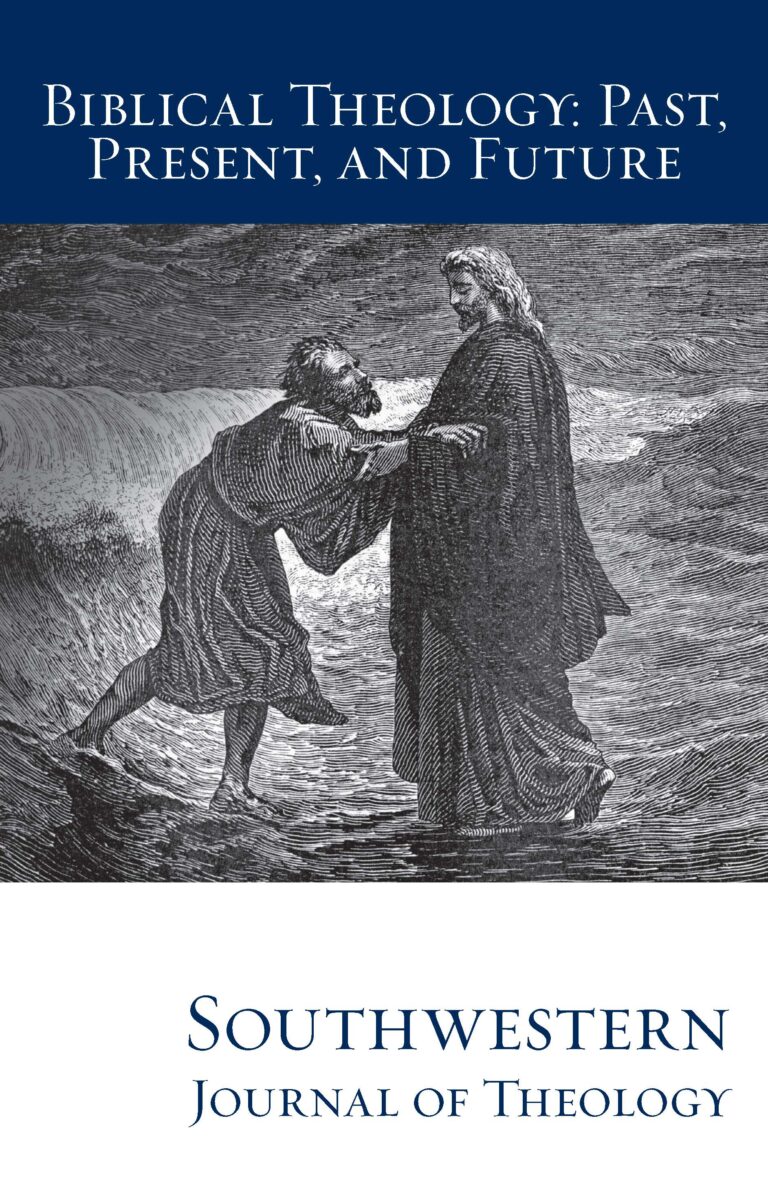
Biblical Theology: Past, Present, and Future (II)
Southwestern Journal of Theology
Volume 56, No. 1 – Fall 2013
Managing Editor: Terry L. Wilder
Francis J. Beckwith. Downers Grove: IVP, 2010. Christian Worldview Integration Series. 175 pages. Softcover, $18.00.
In an era of statism and unpopular, unethical statesmanship, Francis Beckwith attempts to create a Christian worldview of political “soulcraft” based upon the need for Christian citizenship. Christians have inherited in the history of ideas the responsibilities for shaping the public arena. The main contention is phenomenological, that is, Christians should hold back in abeyance their political beliefs before they engage in the political spectrum. In this day of talk radio, pundits, spinoffs, and clichés, a phenomenological approach to politics is certainly needed, but difficult to achieve in the market place of ideas. However, his call for an understanding of the foundations of political science, its history, its laws, and its founders, should provide a fundamental origin for those duties as a citizen. After all, it is the wisdom of applying these precepts that makes political science not merely the accumulation of knowledge, but transformational values for the society. What better way for a Christian to transform the culture for Christ’s values?
In his series preface, Beckwith addresses students with a personal tone, imploring them to integrate Scripture and faith with a unified private and public life. His introduction serves more as pedagogy for integration in education rather than an introduction to the book. Beckwith is then justifying his study as a part of the series for the Christian Worldview Integration Series. Finally, Beckwith addresses the “introduction” or thesis of his book: “In this book, Politics for Christians, the author discusses how Christians should think about their role in the public square. He argues that, liberal democracy, if properly understood, permits Christians to influence and shape their nation’s political and cultural institutions in order to advance the common good. Moreover, the liberties we cherish—such as the freedoms of speech, religion and association—seem to depend on a natural moral law that is best explained by the existence of God. The author introduces the reader to the study of politics by exploring several issues central to a Christian engagement in politics: the discipline of politics, liberal democracy and the Christian citizen, separation of church and state, secular liberalism and the neutral state, and God and natural rights” (26).
Beckwith would do better in introducing the reader to these essential issues in his book rather than spending time justifying the publisher’s series theme. Although admirable in his desire for uniting scholarship and theistic Christianity, Beckwith emphasizes the educational methods rather than introducing the content of political science.
In his introduction, Beckwith criticizes the approach of “politics plus the Bible,” offering his approach instead, “complete truth in Christian virtues” (34). Although he admits we live in a fallen world of politics, the Bible offers universal values through biblical virtues. He makes no apology for addressing conservative Christian values since liberals claim never to mix religion with politics. He summarizes chapter one, describing how universities and colleges teach liberal democracy, and how Christians can encounter those teachings with community-oriented interests. He spends the next three chapters emphasizing the issue of separation of church and state, the neutral approach to the state in liberal democracy, and the role of God, natural law, and the natural moral law. Beckwith claims there can be no neutrality in the politics of the state since politics is an outcome of social and political philosophy, a branch of ethics, or axiology, filled with presuppositions and value systems, including secular humanism or liberal democracy. He desires citizens to enter into a pluralistic society with a legal view that supports religious liberty and allows citizens to make a public case for their views (38). Therefore, in chapter four, Beckwith argues the liberal democratic state cannot remain neutral for those who oppose its views. In chapter five, Beckwith argues for the existence of natural rights based upon a natural moral law best accounted for by the existence of a God who is the source of the natural law (39). In the conclusion, Beckwith urges students to become involved with the “messy conflict” of politics (165).
Although Beckwith’s book serves as a short introduction to political philosophy, the preface to the series serves the instructor more than the student as the audience. He calls for a foundational understanding of the history of political philosophy, but only quotes or alludes to the classical theorists like Aristotle, Plato, Locke, and others, scarcely throughout the book. His contemporary approach emphasizes contemporary issues like separation of church and state, narrowing the scope of his book. A better historical survey for political philosophy is the historical collection of primary sources from Hackett publications, and a better integrative study of the Bible and politics is Wayne Grudem’s book from Zondervan publications, which actually practices the integration of Scripture with politics. However, Beckwith’s book is admirable for what it is, as a beginning book for students in political philosophy.





